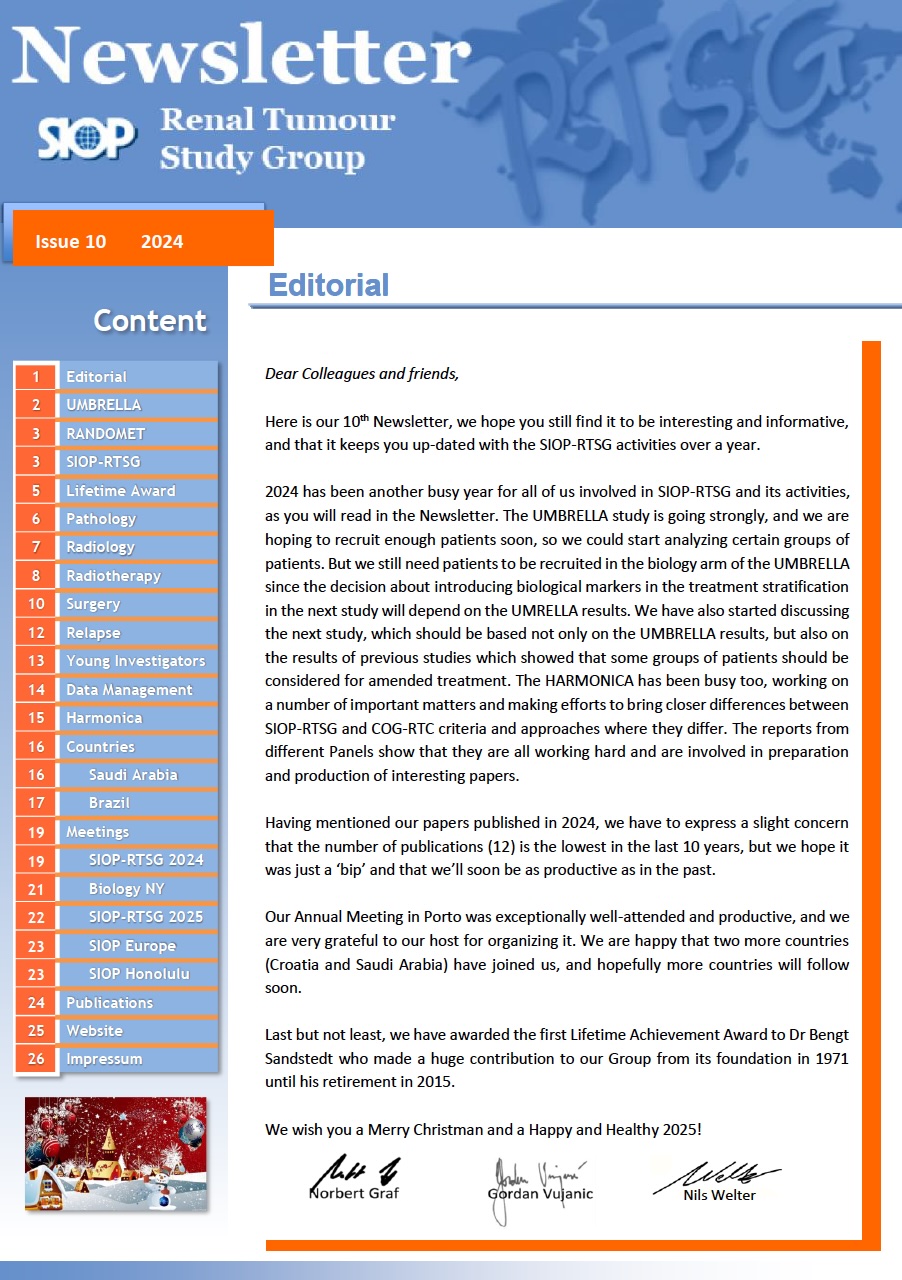They also looked at hospital and GP records to see how Wilms' tumours were detected in 360 children from Great Ormond Street Hospital, the Royal Marsden Hospital and the Royal Victoria Infirmary, Newcastle.
They found that Wilms' tumours diagnosed in the UK were one and a half times bigger than those diagnosed in Germany**.
Over half of children in the UK (58 per cent) and three-quarters of German children (73 per cent) were diagnosed with early stage tumours, but in the UK almost twice as many children were diagnosed at a late stage*** (42 per cent compared with 27 per cent****).
The researchers predict that children in the UK are diagnosed at a later stage than those in Germany as a result of the different childhood healthcare systems in both countries.
In the UK, GPs are the first port of call if a parent is concerned about their child and there are few routine medical checks after children reach six weeks old. When a parent takes their child to the GP with symptoms of Wilms' tumour***** GPs refer quickly to hospital paediatricians. In Germany, children are looked after by paediatricians who work in the community and there are many more routine health checks in early childhood.
The researchers suggest that because German children are more likely to receive full examinations by paediatricians they are more likely to have their Wilms' tumour picked up at an early stage.
Wilms' tumour is the most common type of kidney cancer in children and affects one in every 10,000 children with 80 children****** diagnosed with the disease in the UK each year. Treatment is generally successful, with nine out of 10 children surviving their cancer. But, if the tumour is diagnosed at an advanced stage the child will need more treatment, including radiotherapy and more intensive chemotherapy. These carry a greater risk of causing life-long side effects than the treatment needed by children diagnosed with early stage tumours. Treatment for Wilms' tumour is the same across Europe.
Professor Kathy Pritchard-Jones, study author from UCL, Great Ormond Street Hospital for Children and cancer programme director at UCLPartners, said: "Our study shows that the UK is diagnosing children with Wilms' tumours at a later, more advanced stage than our German counterparts. Finding cancers at an early stage means that treatment is more likely to be successful and have fewer side effects, but the way the UK health system looks after children means we're missing chances for earlier detection. This could affect children's health not just in cancer but across the board. We need further consideration of how paediatric expertise in primary care for children can be strengthened and further research to see if we could be giving more children a better chance."
Professor Pamela Kearns, Cancer Research UK's children's cancers expert, said: "On average a GP will only see one new case of cancer in a young person every 12 years or more. It's crucial that there's better awareness of children's cancers in the community and that suspected cases are referred quickly so they can be diagnosed and treated as soon as possible - ideally tumours need to be picked up at an earlier stage to avoid side effects of more complicated treatments.
"Many children who survive cancer will live with the long-term side effects of their treatment that can have an impact throughout their adult lives, so it's vital that we find ways to diagnose and treat sooner as well as finding kinder and even more effective treatments."
Cancer Research UK Kids & Teens is a campaign with an ongoing mission to raise money for research into cures and kinder treatments for children, teens and young adults with cancer.
* Kathy Pritchard-Jones, Norbert Graf, Harm van Tinteren, Alan Craft. Evidence for a delay in diagnosis of Wilms' tumour in the UK compared with Germany: implications for primary care for children. Archives of Disease in Childhood.
** On average UK Wilms' tumours were 570 millilitres when diagnosed and Germany's were 380 millilitres.
*** Early stage is stage I or II and late stage is stage III or IV.
***** Symptoms include children having a lump in their stomach, stomach pains, blood in urine, high temperature, loss of appetite, weight loss and sickness.
****** Based on the average number of children (aged 0-14) diagnosed with Wilms Tumour between 2008-2010 in the UK. Source: National Registry of Childhood Tumours Progress Report, 2012 http://www.ncin.org.uk/view?rid=2133




